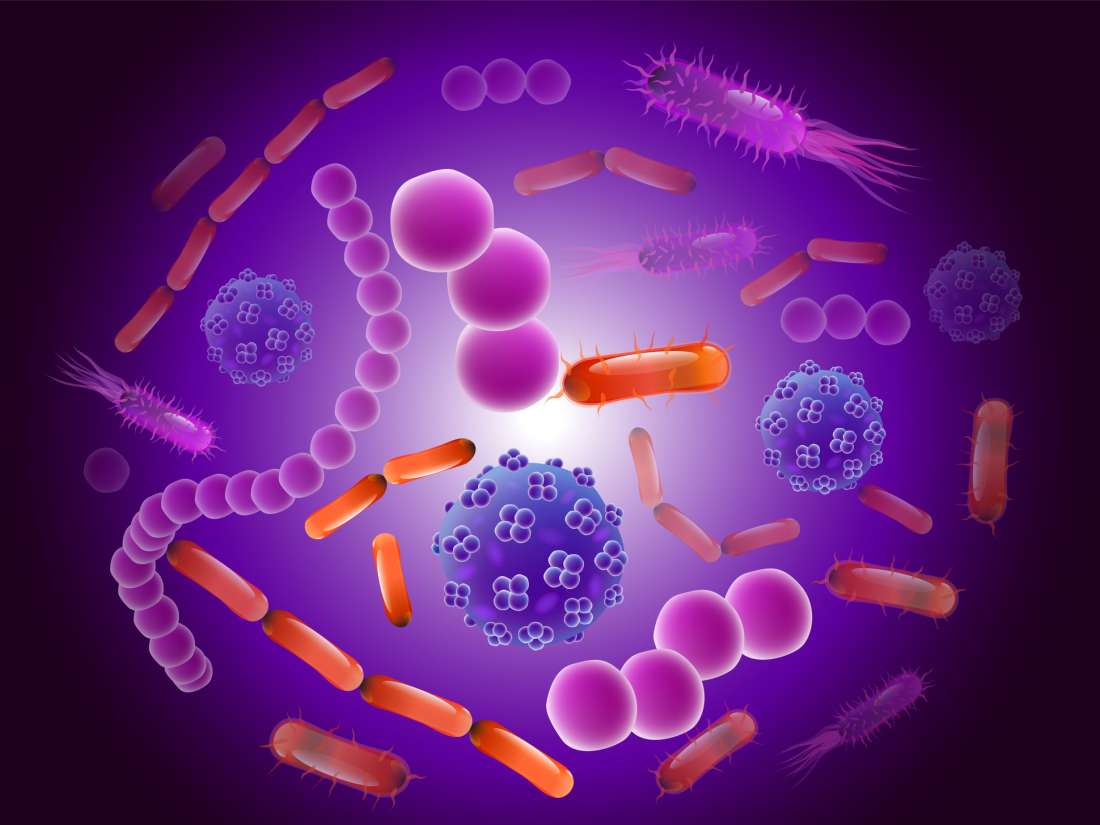Researchers From Nanyang Technological University In Singapore Discover That Gut Bacteria Impacts Aging
Source: Thailand Medical News Nov 25, 2019 6 years, 2 months, 1 week, 1 day, 14 hours, 34 minutes ago
Microorganisms living in the gut may alter the
ageing process, which could lead to the development of food-based treatment to slow it down according to an international research team led by
Nanyang Technological University, Singapore (NTU Singapore).

Every living organisms, including human beings, coexist with a myriad of microbial species living in and on them, and research conducted over the last 20 years has established their important role in nutrition, physiology, metabolism and behaviour.
Using animal models, the team led by Professor Sven Pettersson from the NTU Lee Kong Chian School of Medicine, transplanted
gut microbes from old mice (24 months old) into young, germ-free mice (6 weeks old). After eight weeks, the young mice had increased intestinal growth and production of neurons in the brain, known as
neurogenesis.
The research team showed that the increased
neurogenesis was due to an enrichment of gut microbes that produce a specific short chain fatty acid, called
butyrate.
Typically,
butyrate is produced through microbial fermentation of dietary fibres in the lower intestinal tract and stimulates production of a pro-longevity hormone called
FGF21, which plays an important role in regulating the body’s energy and metabolism. As we age,
butyrate production is reduced.
The medical researchers then showed that giving
butyrate on its own to the young germ-free mice had the same adult neurogenesis effects.
The study was published in Science Translational Medicine and was undertaken by researchers from Singapore, UK, and Australia.
Prof Pettersson told
Thailand Medical News in a phone interview, “We’ve found that microbes collected from an old mouse have the capacity to support neural growth in a younger mouse,” “This is a surprising and very interesting observation, especially since we can mimic the neuro-stimulatory effect by using butyrate alone.These results will lead us to explore whether butyrate might support repair and rebuilding in situations like stroke, spinal damage and to attenuate accelerated ageing and cognitive decline”.
The research team also explored the effects of gut microbe transplants from old to young mice on the functions of the digestive system. With age, the viability of small intestinal cells is reduced, and this is associated with reduced mucus production that make intestinal cells more vulnerable to damage and cell death.
The study showed that the addition of
butyrate helps to better regulate the intestinal barrier function and reduce the risk of inflammation.
The research team found that mice receiving microbes from the old donor gained increases in length and width of the intestinal villi - the wall of the small intestine. In addition, both the small intestine and colon were longer in the old mice than the young germ-free mice.
The new discovery shows that
gut microbes can compensate and support an
ong> ageing body through positive stimulation. This points to a new potential method for tackling the negative effects of ageing by imitating the enrichment and activation of butyrate.
Prof Pettersson added, “We can conceive of future human studies where we would test the ability of food products with butyrate to support healthy ageing and adult neurogenesis.In Singapore, with its strong food culture, exploring the use of food to ‘heal’ ourselves, would be an intriguing next step, and the results could be important in Singapore’s quest to support healthy ageing for their silver generation”.
These results are exciting and raise several new open questions for both biology of aging and microbiome research, including whether there is an active acquisition of butyrate producing microbes during mice life and whether extreme aging leads to a loss of this fundamental microbial community, which may be eventually responsible for dysbiosis and age-related dysfunctions.
“It is intriguing that the microbiome of an aged animal can promote youthful phenotypes in a young recipient. This suggests that the microbiota with aging have been modified to compensate for the accumulating deficits of the host and leads to the question of whether the microbiome from a young animal would have greater or less effects on a young host. The findings move forward our understanding of the relationship between the microbiome and its host during ageing and set the stage for the development of microbiome-related interventions to promote healthy longevity.” commented Professor Brian Kennedy, Director of the Centre for Healthy Ageing at the National University of Singapore, who provided an independent view.
The study builds on Prof Pettersson’s earlier studies on how transplantation of gut microbes from healthy mice can restore muscle growth and function in germ-free mice with muscle atrophy, which is the loss of skeletal muscle mass.
Reference:
Neurogenesis and prolongevity signaling in young germ-free mice transplanted with the gut microbiota of old mice. Parag Kundu, Hae Ung Lee, Isabel Garcia-Perez, Emmy Xue Yun Tay, Hyejin Kim, Llanto Elma Faylon, Katherine A. Martin, Rikky Purbojati, Daniela I. Drautz-Moses, Sujoy Ghosh, Jeremy K. Nicholson, Stephan Schuster, Elaine Holmes and Sven Pettersson. Science Translational Medicine 13 Nov 2019:Vol. 11, Issue 518, eaau4760, DOI: 10.1126/scitranslmed.aau4760.
